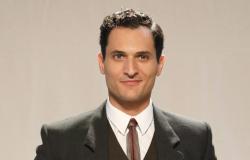A secret is a secret, woe betide you to reveal it. It would lose its effectiveness, power and charm. The truth, fundamentally, is much less attractive than lies. A sadly current paradigm, in an era of fake news and upside-down realities. For this, as the same Elio Germano has explained, Confidence And “a film in which many will be able to see themselves”. The one directed by Daniele Luchetti, and based on the book of the same name by Domenico Starnone, is to all intents and purposes a human noir that vertically cuts through the unpreparedness for control of a man forced by some choices that are impossible to tame. The story, in fact, is that of Pietro Vella, an Italian professor who preaches “the pedagogy of affection”. In some ways, he is someone who wants to make his mark. Or rather, he wants to leave it in his students. Among them, there is Teresa Quadraro (Federica Rosellini), particularly brilliant. Once school was over, Teresa left her studies, to the surprise of that professor with big, sweet eyes: between the two there was a not said (?), and here they launch into a relationship that will culminate with a double confidence that they will exchange: a secret whispered in their ear, so unspeakable that it makes Teresa run away.
What is he hiding, Pietro? What is his secret what does he carry with him, for years and years? ConfidenceIn fact, it is a stimulating film, opening up to infinite questions and conjectures. According to Luchetti: “The film has two souls, it seems to be clear, but then it moves towards other shores, describing the confusion in an orderly manner. There is subtraction, because you have to keep the viewer active: I can no longer stand those films that take the audience by the hand”. Nothing could be more true, as well as crucial in an era of distracted and dislocated cinema. However, if we have told you as best we can about our appreciation for the film in the review, on the other hand we want to delve deeper and review the title, trying to mend it to bring you towards the different and stratified readings that buzz around the fateful question: what is Pietro Vella hiding?
Confidence: a cinema that stimulates
A film that teases, that starts “from a black hole where history is born”. The black hole in question is, precisely, Pietro Vella’s confidence that he will make to Teresa Quadraro, accompanying him throughout his life: under constant and subtle blackmail, the professor is constantly threatened by what could happen if Teresa revealed the unspeakable (thinking about it above, until exhaustion). We’ll tell you in advance: during Confidenza you will rack your brains trying to understand what the character of Elio Germano is hiding. You will go by hypothesis, you will try to put the pieces together. Yet, there is always something that doesn’t add up: Confidencefollowing the musical tracks “deliberately wrong” Of Thom Yorkealtering the breathing as in the best horror films (and here, there are many monsters), seen by Germano it is “An internal journey, it seems like a nineteenth-century Russian novel, recalls Pirandello. It is the story of someone who believes he is discovered, wearing masks after masks”. If this still doesn’t help you to better understand Daniele Luchetti’s film (which plays with verticality and time), it must be said that Vella’s secret, seen by the spectator, could be a sort of McGuffins, which follows the rules of suspense typical of Alfred Hitchcock’s cinema. That is, there is something that exists, but at the same time… does not exist.
Confidenza, the review: Daniele Luchetti’s gaze, Elio Germano’s intensity
Lemons, narcissism, truth

In conclusion, Confidence it is a film that leaves extreme freedom of interpretation: we choose what Pietro and Teresa may have committed. This, in fact, is an important point: Pietro is constantly under pressure, but Teresa could be too “ruined” if his secret were revealed. Yet, according to the woman, she “he has nothing to lose”therefore not suffering the same tension, so much so that her work affirmation is the result of a truth that allows her to “breathe”. Indeed, she is still the one who holds the reins of the game, holding Pietro in her grip, even when they are now elderly.
Confidencein fact, is held up by a constant dualism that it contrasts love and fear. The fear of being discovered, the almost symbiotic love between the two, despite Pietro later marrying Nadia Labaro (Victoria Puccini), that teacher who taught mathematics to Teresa, and with whom she will have a daughter (later played by Pilar Fogliati) who will prove, in the end, decisive in Pietro’s (literal) regression, as we see during the splendid closing credits, in to which the symbolism of the returns lemon (represents salvation and fidelity, elements that do not belong to Peter), already seen before, moldy, in Teresa’s refrigerator.
Our explanation: what if it was a question of perspective?

And then? Then, if the theories on what the confidence that gives the film its title is certainly abound, accompanying us even after viewing, it must be said that they could all be more or less correct (the power of narration, and a cinema that becomes a window from which look out, as happens in the film: windows that open as if they were dangerous escape routes). A explanationmore than the others, however, could ideally represent the reality of the facts, although not preparatory and, in the long run, not essential. Teresa’s reluctance towards Pietro, as soon as he whispers the secret in her ear, will represent a collapse of certainties for the man: if Daniele Luchetti outlines the profile of the contemporary male who tends to emotionally overwhelm the woman, Teresa finds the key to dismantling the mechanism, deliberately taking his secret into the background (who knows, more shocking?), and ensuring that that confession (presumably banal and average, as Vella’s personality is average) could somehow destroy the man, condemning him to a long death.
Here self-sabotage comes into play, with a further question that the work suggests to us: what if it was all just in Pietro Vella’s mind? For Daniele Luchetti, “The character closes off his emotional possibilities because the things around him can fall apart: in this sense the film can be read as the story of a holed up narcissist”. Of course, the conditional is a must, and with the conditional the vision of Confidence. After all, words are liars and only mathematics does not lie. And the cinema? And cinema (almost never) tells the truth. So…








